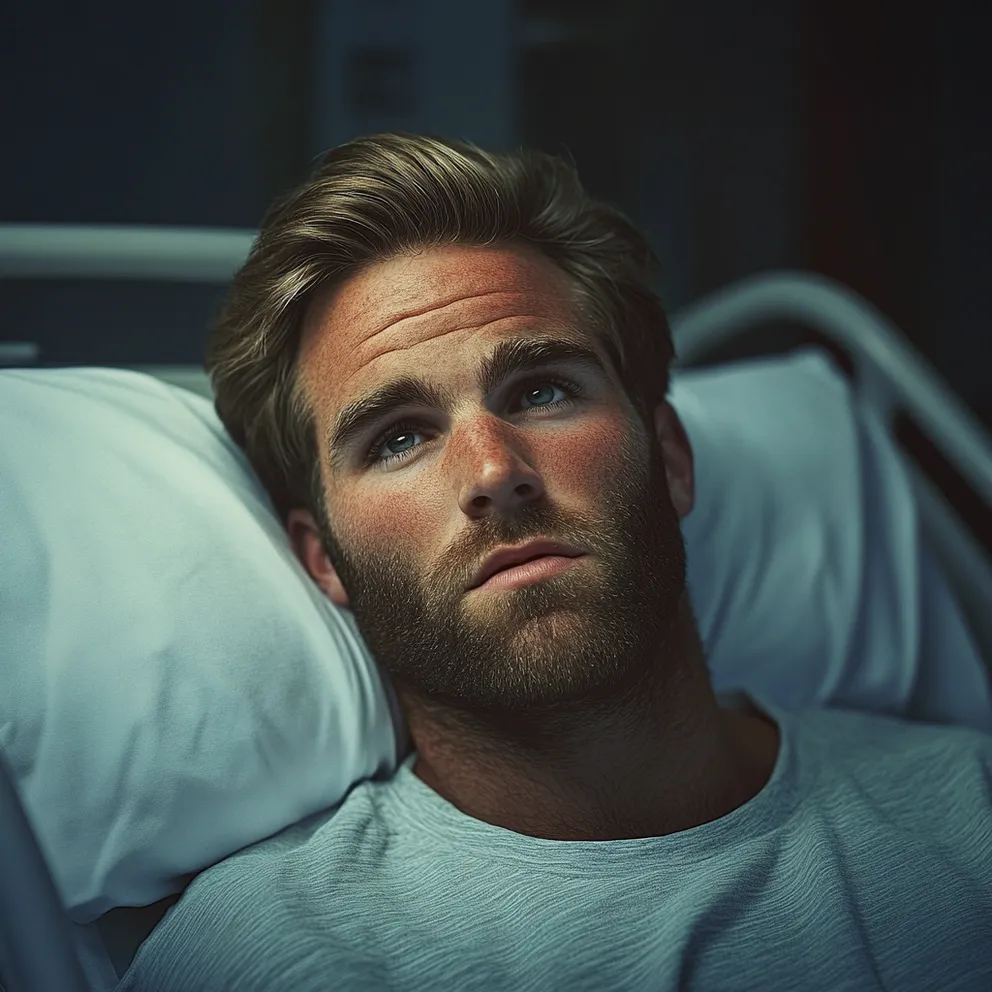Diana braced herself for the inevitable—the heartbreaking goodbye to her husband, who lay dying in the hospital. As she struggled to accept the reality that Eric had only weeks left, an unexpected encounter with a stranger shook her world to its core: “You should set up a hidden camera in his room… you have the right to know the truth.”

I never imagined my life would unravel in a sterile hospital hallway. The doctor’s words were a death sentence that echoed relentlessly in my mind: “Stage four cancer… metastasized… only a few weeks to live.”
The life Eric and I had built over 15 years seemed to crumble in an instant. The weight of my wedding band pressed against my finger, pulling me back to memories of joy: our first dance, coffee together in peaceful silence, and the way he used to stroke my hair when I was upset.
I felt unmoored, watching families pass by—some laughing, others crying, and others suspended in that cruel purgatory of hope and despair. My chest tightened. I had to get out before I broke completely.

The fresh September air hit my face as I stumbled outside, collapsing onto a bench near the entrance. The sun was setting, its long shadows stretching across the hospital grounds, mimicking the turmoil inside me.
That’s when she came.
At first glance, she was just an ordinary nurse in her late forties, wearing navy scrubs and sensible shoes, her silver-streaked hair pulled into a tight bun. Yet there was something in her tired eyes—something that seemed to hold a secret. Without asking, she sat beside me, her presence both startling and oddly comforting.
“Set up a hidden camera in his room,” she said softly, her voice barely above a whisper. “Your husband isn’t dying.”
The words felt like ice. “What?” I snapped. “How dare you say that? He is dying. The doctors said so. Who do you think you are—”

“Sometimes, you need to see for yourself,” she interrupted, her voice calm but firm. “I work nights. I notice things that don’t add up. Trust me, you need to know the truth.”
Before I could respond, she rose and disappeared into the hospital like a shadow, leaving me with a million questions and no answers.
That night, as I lay in bed, her words tormented me. Eric’s diagnosis replayed in my mind: the way he squeezed my hand, the anguish on his face. What if…? I couldn’t shake the sliver of doubt she had planted. By morning, I had ordered a discreet camera online, my hands trembling as I finalized the purchase.
The next day, while Eric was out for a routine scan, I slipped into his room. My hands shook as I concealed the tiny device among the flowers on the windowsill. Each movement felt like betrayal, but some instinct pushed me forward.
“I’m sorry,” I whispered, unsure if the apology was meant for Eric or myself.

When he returned, pale and weary, I played along. “Where were you?” he asked, his voice frail.
“Just grabbing coffee,” I lied. “How was the scan?”
“Exhausting,” he murmured. “The pain’s worse… I just need rest.”
“Of course,” I said, squeezing his hand. “I’ll let you sleep.”
Later that night, at home, I opened my laptop, heart racing as I accessed the camera feed. For hours, there was nothing but routine—nurses checking in, Eric sleeping. I began to feel foolish.
Then, at 9 p.m., everything changed.

The door opened, and a woman entered. She was tall, confident, and elegant, her dark hair perfectly styled. She moved toward Eric with familiarity that stopped my breath.
Eric, my supposedly dying husband, sat up. Easily. No pain, no struggle. His face lit up as he embraced her, their kiss shattering my world.
They talked in hushed tones, their body language intimate. She handed him papers, which he carefully hid under his mattress. Whatever they were planning, it wasn’t innocent.
The next morning, I walked into Eric’s room, my stomach churning with the weight of what I’d seen. He was back to his performance—frail, weak, barely able to lift his water glass.

“Morning, sweetheart,” he rasped.
“Morning,” I said, forcing a smile. “Anything I can do?”
“No,” he whispered. “Just… be here.”
That evening, I didn’t leave. Hidden in the parking lot, I waited. Around 9 p.m., the woman appeared. This time, I followed her.
From outside Eric’s room, I heard every word.
“Once you’re declared dead, the insurance money will transfer offshore,” she said. “We’ll start fresh.”
Eric’s reply was jubilant. “Perfect. Dr. Matthews played his part. Faking the cancer cost me, but it’s worth it. Diana suspects nothing.”
Victoria laughed. “Poor thing. She’s even planning your funeral.”

Their words cut deeper than I thought possible. Fifteen years of love reduced to a scam. But instead of breaking, I hardened. If they wanted a game, I’d play.
The next day, I invited everyone—family, friends, coworkers—to visit Eric. “It’s time to say goodbye,” I said, my voice breaking just enough.
By evening, Eric’s room was crowded. He looked uneasy, but he maintained his act. I waited until the room was full before stepping forward.
“There’s something everyone needs to see,” I said, holding back tears. “Eric has a secret.”
I played the footage on the room’s TV. The embrace. The kiss. The plan to fake his death. The gasps and cries were deafening. His mother’s grief turned to fury. His father had to be restrained.

When Victoria arrived, she froze in the doorway, too late to escape.
Security and police arrived soon after. Eric was led away in cuffs. Dr. Matthews and Victoria didn’t fare much better.
The next day, I filed for divorce and returned to the bench outside the hospital, hoping to see the stranger again. She appeared, smiling faintly.
“Thank you,” I said.
“Sometimes, the worst diseases aren’t in the body,” she replied. “They’re in the soul.”
I lost Eric, but in losing him, I found my strength. And sometimes, the end of one story is the start of another.
As the sun set, I slipped my wedding ring into my pocket, ready to begin again.

